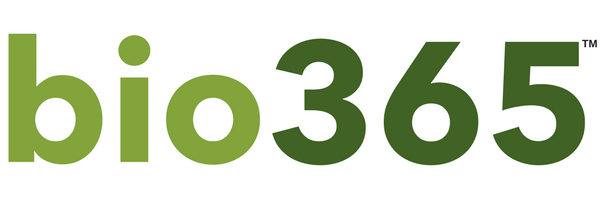How to Future-Proof Your Business from Fertilizer and Other Supply Chain Shortages
/
When Russia invaded Ukraine earlier this year, few people were thinking about how the war would affect cannabis cultivation, but it has. Russia is one of the largest global exporters of fertilizer and soil nutrients, and escalating U.S. sanctions on trade with Russia have disrupted fertilizer supplies for cannabis growers across the U.S. As a result, growers are paying 12% more for fertilizer this year, and that’s on top of 17% higher prices they were paying in 2021.
The reality for cannabis growers is supply chain shortages that began during the COVID-19 pandemic have yet to be solved, and now, the Russian invasion of Ukraine is adding more problems and costs for growers who are already struggling to survive financially.
The bio365 has already shared our insights about COVID-19 supply chain shortages affecting cannabis cultivators here on our blog, and we’ve covered how to reduce peat delays, how to solve perlite shortage problems, and how to solve coco shortage problems.
Now, let’s explore some ways cannabis growers can avoid fertilizer shortages and the high prices that come with those shortages. Following are two of the best ways to do it and reap the resulting long-term benefits:
Use Fertilizer Judiciously
Did you know that incorrectly feeding plants is one of the most common problems cannabis cultivators face? With the current fertilizer shortage causing scarcity and driving prices up, the problem of over-feeding becomes more critical than ever to solve quickly.
Fortunately, there is a way to ensure you’re not over-feeding your cannabis plants and wasting fertilizer during the first six weeks or so of the grow cycle. For just $200-$300, you can get an affordable and highly accurate chlorophyll meter to measure the amount of chlorophyll in your plants’ leaves. The amount of chlorophyll in your plants directly correlates to the amount of nitrogen in them, and it’s nitrogen that drives feeding in the early stages of growing.
Bottom-line, when you know how much nitrogen is in your plants, you’ll know with confidence whether or not you need to increase or decrease feeding. As a result, you won’t add fertilizer unnecessarily, which could significantly reduce the amount of fertilizer you need to buy if you’ve been overfeeding.
Ultimately, your costs will go down, your plants will be healthier, and you’ll limit the affects that the current fertilizer shortage could have on your business. Not only that but you’ll also insulate your business from supply delays or rising prices in the future.
Use Soil that Doesn’t Require You to Add A lot of Chemical- or Salt-based Fertilizer
The majority of growers use chemical-based or salt-based fertilizers to feed their crops. The problem is those are the fertilizers that are in short supply due to the war between Russia and Ukraine. Those fertilizers are also not good for the environment. You can solve both problems and set your grow operation up for long-term success by switching to a soil that doesn’t require you to add a lot of chemical- or salt-based fertilizers.
For example, bio365 soils already include fertilizer. It’s organic (not chemical- or salt-based), and it comes from the United States. That means the Russian invasion of Ukraine and associated fertilizer shortages have no impact on bio365’s soil supply at all. Furthermore, many bio365 soils already contain most of the nutrients growers need for their cannabis plants, so you don’t have to feed your plants much at all when you use them.
It’s important to understand that while basic organic fertilizer can behave differently from chemical- and salt-based fertilizer, bio365’s fertilizer mimic chemical- and salt-based fertilizers and behave the same. Our soils are manufactured using a patented process that makes organic fertilizer bioavailable to your plants. As a result, it’s virtually identical to the plant as chemical-based fertilizer. However, it’s organic, so it’s much better for your plants and the environment.
For growers who want to feed their cannabis plants with their own fertilizer, bio365 offers feeding soils that don’t include fertilizer but still help you reduce your need for fertilizer and the high costs that come with fertilizer purchases.
All of bio365’s soils, including our feeding soils, have a dual buffer system – a chemical buffer and a biological buffer. This dual buffer in bio365’s soil, combined with our patented biochar (called bioCOREä), allows the soil to hold the nutrients you apply, so less nutrients get washed out. You’ll lose less nutrients over time, so you’ll need to feed less frequently, use less fertilizer, growth healthier plants, and save money on both fertilizer and labor. In fact, bio365’s feeding soils consistently drop fertilizer needs for cultivators by 20%.
Therefore, when you reduce your need for fertilizer today, you’ll reduce the effects on your business from external forces that you have no control over, such as the Russian invasion of Ukraine or the COVID-19 pandemic.
Key Takeaways about Future-Proofing Your Business from Fertilizer Shortages
You can avoid the problems that come with fertilizer shortages and rising prices by taking two strategic steps: 1) Use the right tools to monitor when your plants truly need nutrients, and 2) switch to a soil that isn’t reliant on chemical- salt-based fertilizers or reduces the need for chemical- or salt-based fertilizers, like all of bio365’s soil products.
Keep in mind, fertilizer is just one thing you can focus on to future-proof your business, but don’t stop there. Look at all of your inputs and supplies and determine if there are better options available to get the same or better results that will insulate your business and your plants from macro-environmental and economic factors.
Bottom-line choosing a substrate that removes the need for many of the inputs susceptible to shortages and price increases is the most important step you can take today to future-proof your business’ success tomorrow.

